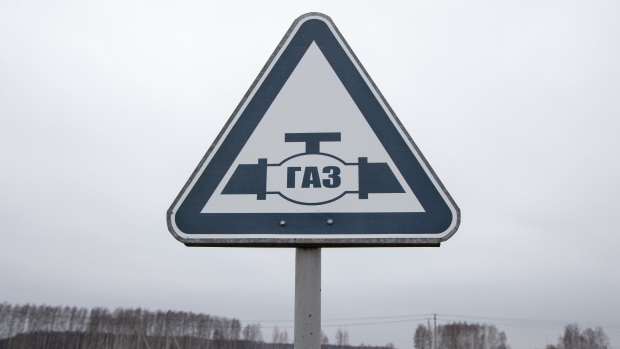Jul 25, 2022
European Gas Prices Advance on Russian Pipeline Uncertainty
, Bloomberg News

(Bloomberg) -- European natural gas prices edged higher for a fourth day with little clarity on future volumes via a major Russian pipeline.
While the Nord Stream pipeline is sending gas to Germany at a consistent rate of 40% of capacity following the end of maintenance on July 21, Russian President Vladimir Putin last week warned that this could decline to 20% if a turbine that’s stuck in transit isn’t received in time to replace another that’s likely to need repairs.
The critical piece of equipment is still in Germany as it missed a ferry sailing on Saturday to Helsinki amid paperwork delays, Russian newspaper Kommersant reported. If the exchange of documents happen, the transport may happen in the next few days, it said. The component was first stranded in Canada after routine repairs because of sanctions on Russia over its war in Ukraine.
Uncertain about the future level of Russian flows, the European Union is on a mission to save as much gas is possible ahead of the peak winter demand season. The European Commission President Ursula von der Leyen called on all EU member states to participate in the effort to save gas, regardless of how dependent they are on Russia for the fuel.
German Companies Must Save More Gas, Network Agency Says
“Putin has suggested that if the turbine is not back early this week then gas flow may fall to 20% capacity even though originally this turbine wasn’t expected to be needed until September,” Deutsche Bank AG said in a research note. “So watch out for gas politics.”
Still, even limited volumes via Nord Stream have helped Germany and its embattled utility Uniper SE stabilize gas storage levels.
Inventories are now at 65.9%, and the country’s storage is back on a “proper path,” according to federal network agency BNetzA.“ It’s set to reach the 75% level by Sept. 1. Uniper has also ended storage withdrawals, it said.
Uniper, which last week was bailed out by the government, had to take gas from its storage sites in Germany when Russian flows dwindled. Its storage facilities in Germany resumed injections on Saturday and are now 53.1% full, data from Gas Infrastructure Europe show.
Dutch front-month futures, the European benchmark, rose 0.7% to 160.96 euros per megawatt-hour by 9:02 a.m. in Amsterdam.
©2022 Bloomberg L.P.





